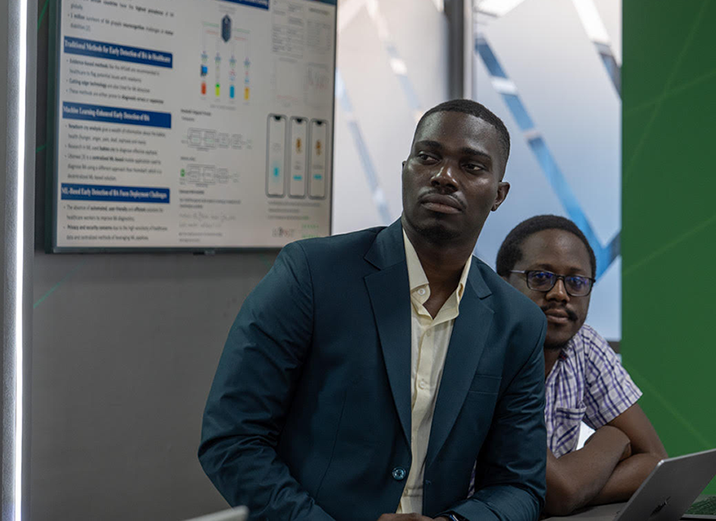This page has moved. If you are not redirected, click here.
Carnegie Mellon University Africa's Breakthrough in Detecting Birth Asphyxia-HumekaFL
Carnegie Mellon University Africa (CMU-Africa) has been at the forefront of health technology innovations, particularly with their recent development aimed at addressing neonatal health issues in developing countries. Their latest project involves the use of artificial intelligence to detect birth asphyxia, a condition critical for newborn health if not identified and treated promptly.

The Project
Researchers at CMU-Africa have developed HumekaFL, an app that uses federated learning to analyze newborn cries for symptoms of birth asphyxia. Here’s how it works:
- Functionality: HumekaFL captures the acoustic patterns in a baby’s cry to diagnose potential oxygen deprivation during or immediately after birth.
- Impact: This technology aims to enhance neonatal care in resource-limited settings, potentially reducing infant mortality and long-term health issues.
Research and Development
- AI Application: By employing federated learning, the app ensures data privacy while still benefiting from a broad dataset, crucial for effective machine learning in diverse settings.
- Interdisciplinary Approach: The project melds expertise from decision science and maternal-fetal medicine to address this pressing health issue.
Community and Global Health Implications
- Empowering Local Healthcare: HumekaFL can be operated with minimal training, empowering local healthcare workers to manage neonatal emergencies more effectively.
- Scalable Solution: Its design allows for adaptation across different languages and cultural contexts, offering a scalable solution for global health.
Relation to Ubenwa
- Similar Endeavor: Another notable project in this domain is Ubenwa, which also uses AI to interpret infant cries. Ubenwa’s system analyzes the amplitude and frequency patterns in cries to diagnose birth asphyxia, providing early detection and potentially life-saving interventions. Like HumekaFL, Ubenwa aims at making healthcare accessible in under-resourced settings, focusing on non-invasive, quick, and accurate diagnosis.
Conclusion
The work by Carnegie Mellon University Africa on HumekaFL, alongside initiatives like Ubenwa, showcases the potential of AI in revolutionizing neonatal care. These innovations are pivotal steps toward health equity, using technology to bridge gaps in healthcare in some of the world’s most vulnerable communities.
References
- For more on HumekaFL: Carnegie Mellon University Africa News
- For Ubenwa: Ubenwa Official Website